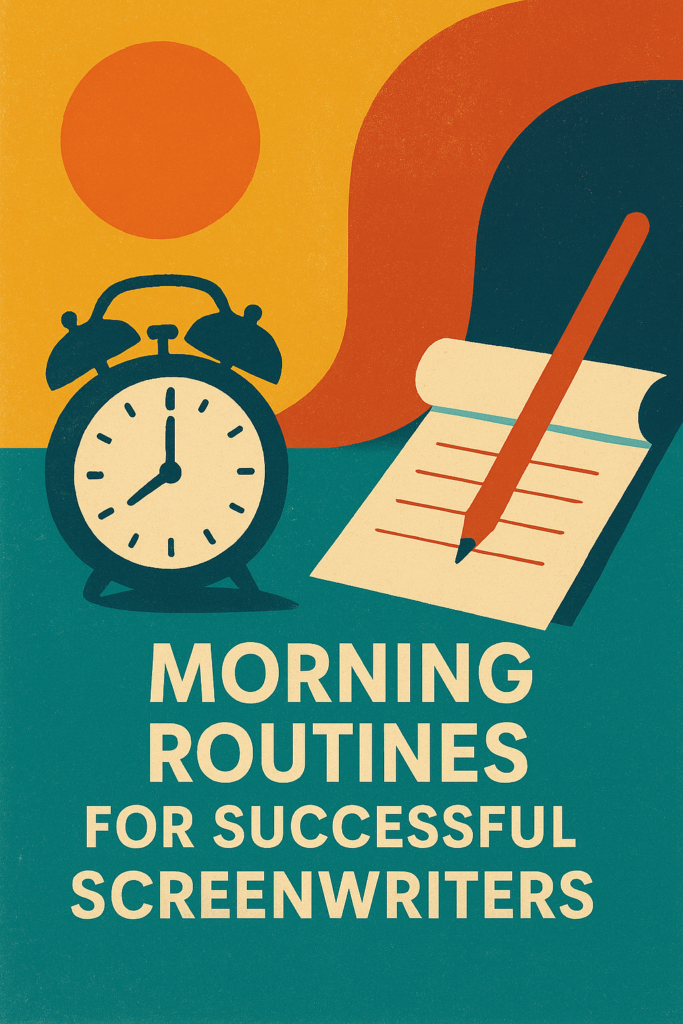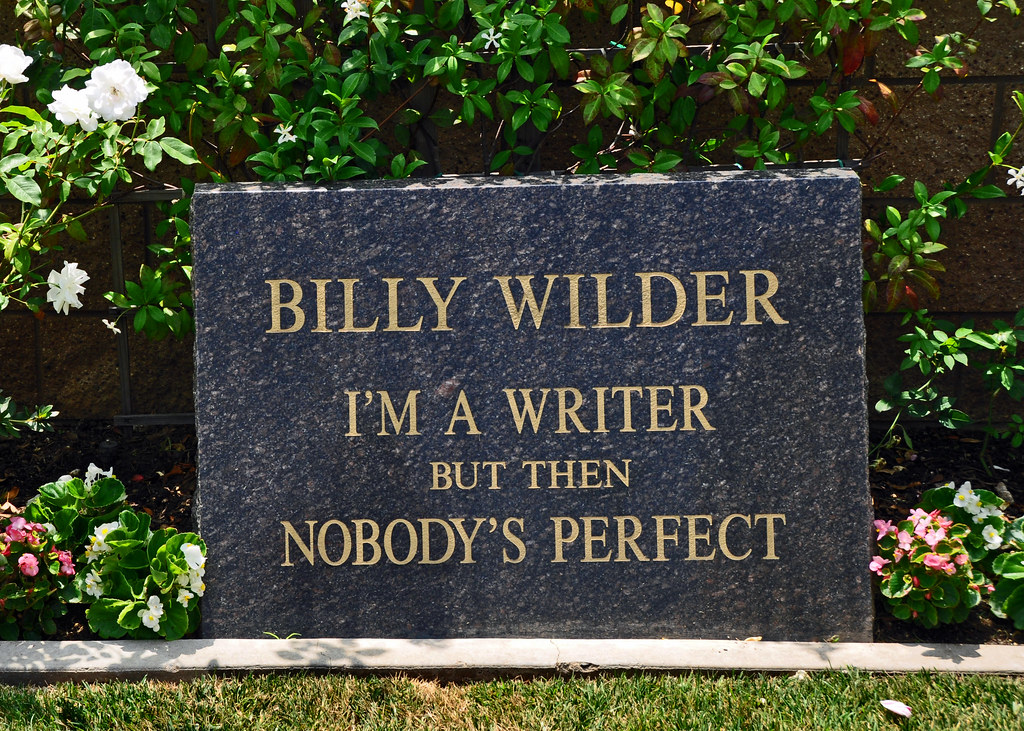Successful Morning Routines for Screenwriters: Writing Before the World Wakes Up

Inspiration doesn’t always strike on a schedule—but deadlines and distractions arise at any time. In an industry driven by both creativity and productivity, the elusive “perfect writing routine” can provide much-needed consistency.
Naturally, many screenwriters identify as night owls, including me. In fact, there’s little worse than people who rabbit on about how much better the morning is, particularly because they always do it in a way that makes them seem superior. Honestly, I want to slap them.
However, even if you’re naturally a night person, it’s worth giving a morning writing routine a shot because you never know when it will unlock new levels of focus, clarity, and imagination.
Here’s a practical, honest guide to building a morning writing routine for screenwriters.
1. Why Waking Early Works—Even If You’re a Night Owl
The solitude of midnight writing sessions is unparalleled. It’s no secret that many writers find their voice once the rest of the world has gone to sleep. But there’s a compelling case for making the switch—or at least experimenting with early hours.
The Science of Semi-Sleep Creativity
There’s a unique cognitive window in the first hour after waking, when your brain is still transitioning out of sleep. This is known as the “hypnopompic” state—a blend of dreaming logic and waking consciousness. During this phase:
- The critical mind is less active, allowing ideas to flow more freely.
- You’re still connected to your dream world, making symbolic and emotional associations more accessible.
- There’s a mild disorientation that can fuel imaginative leaps.
For screenwriters, this is when you’re most likely to come up with bizarre plot twists, unexpected metaphors, and fresh perspectives—before the analytical brain starts vetoing your instincts.
Everyone’s idea of “early” is different, but whatever clock hour you choose, make sure that it offers fewer external distractions: no emails, no texts, no meetings. Just you and the page.
2. The Evening Routine Is More Important Than the Morning
Here’s the paradox: you can’t have a productive morning without preparing for it the night before.
Most “morning routine” advice skips this, but it’s essential—especially if you’re transitioning from being a night person.
Why the Evening Routine Matters More
- You can’t get up early if you’re not sleeping enough. NEVER sacrifice sleep for the purposes of the morning routine; this is totally unsustainable.
- Your energy in the morning is determined by the decisions you made the night before.
- Going to bed late makes your body resist the early alarm, triggering grogginess or skipped writing sessions. Just as with exercise, more you skip, the more you make a habit of skipping, and–to mix metaphors–if you don’t right the ship sooner rather than later, you’re just circling the drain.
Key Elements of a Screenwriter’s Evening Routine
- Set a digital sunset: Stop using screens at least 30–60 minutes before bed. Blue light delays melatonin production, making it harder to fall asleep.
- Plan tomorrow’s writing: Know what scene, beat, or task you’re tackling first thing. More on this in a moment.
- Wind down with fiction, not fact: Read a novel or watch a film—not the news or (God help me) social media. Let your brain return to a creative wavelength.
- Go to sleep at the same time every night: Consistency is more important than total hours. Regularity, at least anecdotally, appears to boost sleep quality.
Remember, a solid morning begins with a wise night.
3. Choose a Creative Ignition Task: Dreams or Morning Pages
Once you’re up and semi-awake, don’t dive into your feature script right away. That’s like starting a race without stretching. Instead, prime the pump.
Option 1: Write Your Dreams
Keep a notebook next to your bed. The second you wake, jot down anything—images, snippets of dialogue, feelings, shapes. Even a single sentence can become a spark.
Why this works:
- Dreams are emotionally charged.
- They’re often non-linear and visual, like film.
- They bypass logic, tapping directly into theme and metaphor.
A strange dream can become:
- A surreal scene in an otherwise grounded story.
- A metaphorical conflict for your protagonist.
- A visual motif that recurs throughout a script.
Not that there’s any need to use your dreams as writing fuel, but it’s a useful exercise just to get the hand moving and to clear the mind of whatever gunk built up there overnight.
Or perhaps your morning routines use…
Option 2: Morning Pages (à la Julia Cameron)
In The Artist’s Way, Julia Cameron recommends writing three longhand pages of stream-of-consciousness thought every morning. No editing. No judgment. Just pure flow.
You might write:
- “I don’t know what to write.”
- Complaints, daydreams, fears.
- Observations or memories.
These pages flush out static and reveal subconscious priorities.
For screenwriters, they can also surface hidden story instincts. Maybe your character is anxious because you are. Maybe your structure’s off because your thoughts feel scattered. Morning pages illuminate these hidden feelings.
4. Always Know What You’ll Write the Night Before
Decision fatigue is a thing—in particular, a thing that kills your morning writing sessions.
There’s nothing worse than waking up early, making coffee, sitting at your desk… and realizing you need to figure out what you’re writing. Your creative brain is groggy. Your to-do list is unclear. You open eBay.
Writing session over.
The Power of a Pre-Writing Plan
The way around this is to write, soon before bed:
- The exact scene or task you’ll start with
- Your writing target (pages, minutes, word count)
- A reminder of where you left off (write this in your document or on a Post-it)
This allows your early-morning self to move straight into writing, bypassing hesitation.
You could even try the old Ernest Hemingway trick of always finishing your writing mid-sentence so you have a definite point of entry for the next day.
Over time, your brain starts associating mornings with momentum. You develop muscle memory. Sit. Open file. Write.
5. Always Have a Mechanical Backup Task: 15–60 Minutes of Useful Momentum
Some mornings, your brain will be foggy or resistant. Instead of doom-scrolling or giving up, have a fallback activity that’s structured, valuable, and not dependent on the muse.
Mechanical Tasks for Screenwriters
- Scene-by-scene breakdown of a favorite film
- Transcribe dialogue from a great screenplay
- Outline someone else’s movie beat by beat
- Categorize characters by want/need
- Logline rewriting exercises
These tasks require less emotional involvement yet still sharpen your instincts and craft. Think of it as “creative maintenance.” You’re staying in shape, even if you’re not producing new material.
Even 15–20 minutes of this kind of work keeps you connected to your screenwriting practice. And often, doing this unlocks inspiration for your own writing later in the day.
A Sample Morning Routine
Realistic, flexible morning routines don’t need to be complicated:
Night Before:
- Plan tomorrow’s writing task
- Wind down by 10:00 PM
- Bedtime reading: a few pages of fiction – NO SCREENS!
Morning:
- 6:30 AM — Wake up
- 6:45 AM — Write down dream fragments or morning pages
- 7:10 AM — Begin planned writing task (scene, outline, revision)
- 7:45 AM — If stuck, switch to mechanical task (film breakdown)
- 8:00 AM — Done. Commute, breakfast, or dive into the day
Even 30–45 minutes like this, done consistently, can lead to:
- A polished screenplay draft in 2–3 months
- Stronger creative instincts
- A sense of daily accomplishment
Now, don’t treat this as shaming. If you’re like me, your eyes probably glazed over at the 10am in-bed. To hell with morning routines; I’m not a nun!
So let’s be brutally honest–if you’re an asshole like me, you’re going to bed at 12 or 12:30 and getting up for an 8am writer’s hour so you can shift all of this back to a time that works for you.
Maybe one day I’ll do better, but one can always hope!
Writing in the Morning Is Margin, Not Magic
Writing in the morning doesn’t mean you’re a monk. Or a preachy douchebag.
However, if you’re serious about your screenwriting—and especially if your day is filled with work, family, or other responsibilities—early mornings might be your best (or only) shot at sustainable creativity.
The real gift of a morning routine isn’t discipline. It’s margin.
To wit: you need mental space before the noise floods in. A space where you’re still close to dreams, yet ready to shape them. Where you have a rhythm that is intentional, not reactive.
Give your stories the morning they deserve.







